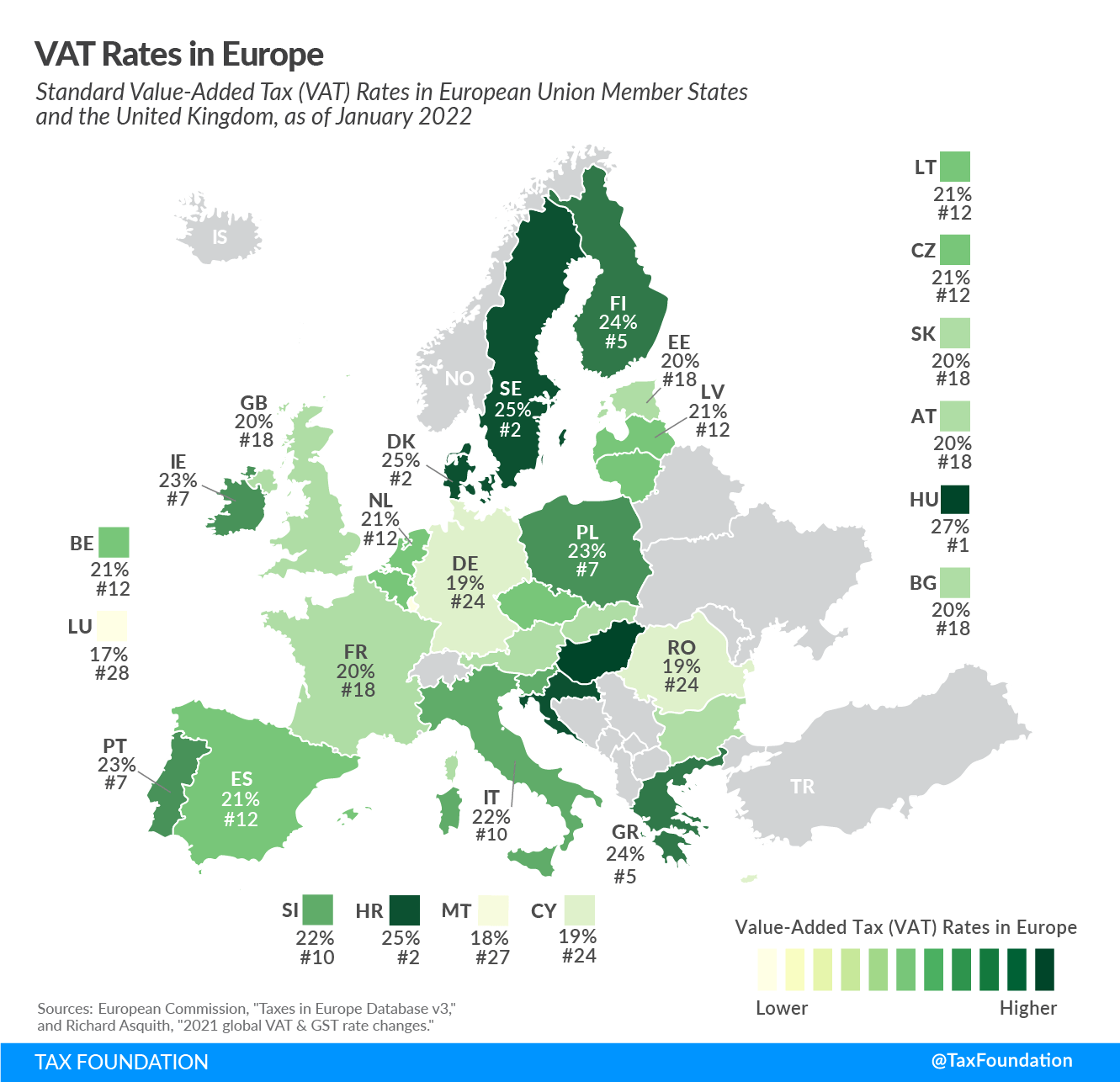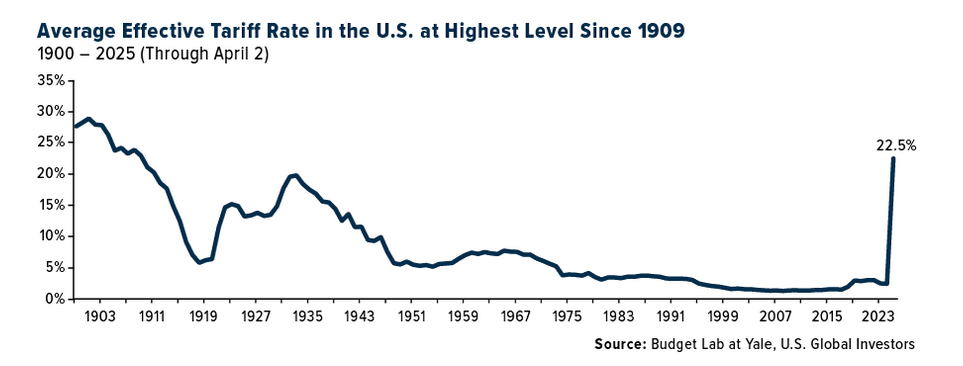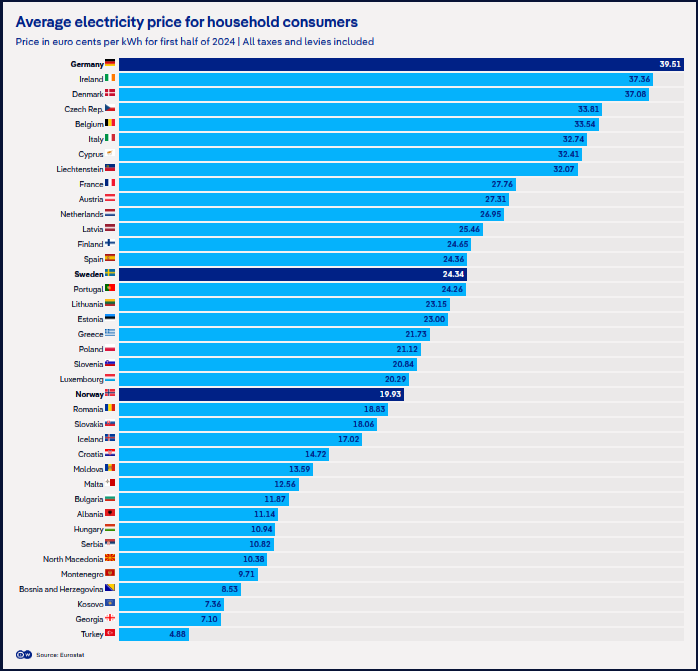Most countries of the world have a Value-Added Tax (VAT) that is levied on goods and services. The VAT is a consumption tax and varies widely among the member nations of the EU and the UK. The highest VAT rates for 2022 are in Hungary which charges 27 percent and Croatia, Denmark and Sweden where it is 25 percent according to an article at Tax Foundation. The lowest rates are in Malta, Cyprus, Germany and Romania. Even in the lowest rate countries the VAT is still high relative to US rates. In Germany for instance the VAT rate is 19 percent. The average VAT rate in the EU is 21 percent.
The following chart shows the VAT rates across the EU and the UK in 2022:
Click to enlarge
Source: 2022 VAT Rates in Europe by Cristina Enache, Tax Foundation
However there are some exemptions to the standard VAT rates. Below is an excerpt from the piece:
One of the main reasons for reduced VAT rates and VAT-exempted goods/services is the promotion of equity, as lower-income households tend to spend a larger share of income on goods and services such as food and public transport. Other reasons include encouraging the consumption of “merit goods” (e.g., books), promoting local services (e.g., tourism), and correcting externalities (e.g., clean power).
However, evidence shows that reduced VAT rates and VAT exemptions are not necessarily effective in achieving these policy goals and can even be regressive in some instances. Such reduced rates and exemptions can lead to higher administrative and compliance costs and can create economic distortions. A recent study shows that scrapping VAT reduced rates in EU countries will allow standard rates to drop under 15 percent. To address equity concerns, the OECD instead recommends measures that directly aim at increasing poorer households’ real incomes.
In the US, each state levies sales taxes based on its own laws. For example, the current sales tax for New Jersey is 6.625%. Some goods like food are exempted from this tax. That does not mean all foods are sales tax free. A loaf of bread will be tax free but not a soda bottle. The reason being that bread is necessity while soda is a luxury item. It should be noted that in many states local municipalities or counties will tack on an additional tax to the state taxes. So the overall tax rate will be higher.
Generally tax rates are lower in the US compared to the EU. In fact, in states like Oregon, New Hampshire, etc. the sales tax rate is 0%. Another point is the rates in Europe are national rates. In the US, states decide their own rates.




